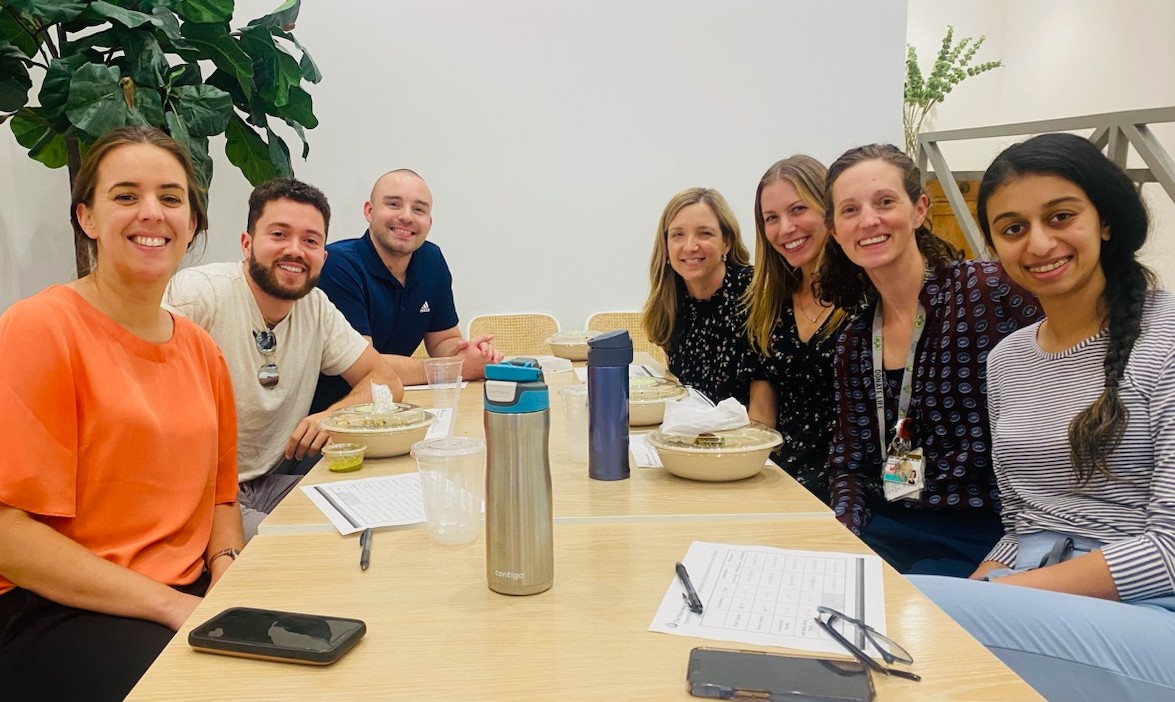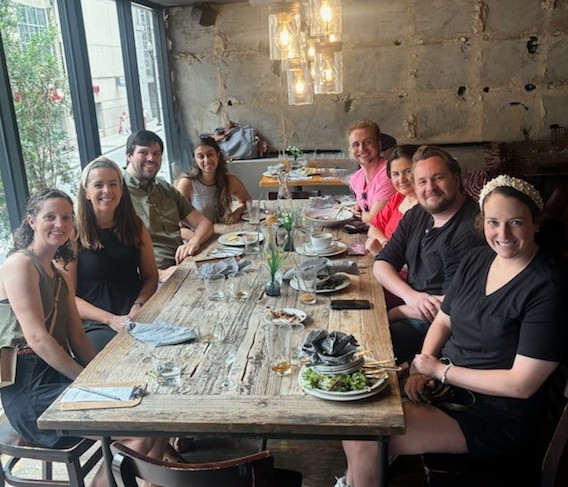Inpatient and Emergency Department Team
The neurology resident on the inpatient service will work with a general pediatrics resident, advanced practice providers, and medical students to manage patients with a wide range of neurologic conditions. Residents see “bread and butter” cases, such as complex febrile seizures, migraines, status epilepticus, Guillain-Barré syndrome and hypoxic ischemic encephalopathy, as well as complex traumatic brain and spinal cord injuries and prognosis, rare epilepsy syndromes, demyelinating diseases, mitochondrial disorders, and neurodegenerative disorders. Residents will get experience as team leaders as well as experience as educators with bedside teaching and more structured teaching sessions with the rotating pediatrics residents and medical students.

Neurocritical Care Team
The neurology resident on this team is a consultant for the Neonatal ICU, the Pediatric ICU, and the Pediatric Cardiac ICU. Critical care medicine is busy here at VUMC and includes a Level IV NICU with 106 beds, a 42-bed PICU, and a 38-bed dedicated cardiac floor to include the PCICU. There is a wide breadth of clinical cases encompassing all of our pediatric neurologic subspecialties. Further learning opportunities include the Neurocritical Care Multidisciplinary Conference Series that includes faculty and trainees from the ICU, Neurology, Neurosurgery, and Neuroradiology, led by providers from throughout the medical center as well as invited speakers.
Pediatric Epilepsy Monitoring Unit Team
The neurology resident on this service works with the epilepsy fellow, advanced practice providers, and an epileptologist to care for patients in our six-bed Epilepsy Monitoring Unit. This resident will admit patients to the EMU in order to capture and classify “spells” as epileptic, help localize seizures as part of a pre-surgical/surgical work-up, or undergo invasive monitoring in surgical resection planning. In addition to leading rounds along with the epilepsy attending and epilepsy fellow, the neurology resident can also take advantage of a special EMU curriculum and participate in the Comprehensive Epilepsy Clinic.
Teaching Rotation
For one block of their final year of training, pediatric neurology residents will serve the role of an attending, leading the inpatient or neurocritical care teams, taking consults from primary care providers and outside hospitals, and gaining experience in at-home call, staffing consults with the night float neurology residents. There is an outpatient supervisory portion as well, creating a comprehensive experience. This rotation provides the next level of graduated independence for our senior residents, while still having attending back up. Teaching residents will also guide teaching of junior neurology residents, pediatric residents, and medical students throughout the week.
Outpatient Pediatric Neurology
Starting in their first year of training, residents will spend time in the pediatric neurology clinic seeing a variety of patients in faculty clinics. This experience can be tailored to individual resident needs but encompasses general and subspecialty clinics. Exposure to subspecialty clinics begins early in training so as to provide residents with exposure to potential areas of career interest.
Night Float
Child neurology residents in their PGY-3, PGY-4, and PGY-5 years will work night shifts during which they will see all new child neurology consults, child neurology stroke alerts, address any cross-cover concerns on inpatients or consults, and monitor continuous EEGs. All of this is done with epilepsy fellow and attending support.

Electives
Residents have ample time to explore interests within neurology throughout their residency. There are clinical options, such as: epilepsy (EEG), neuromuscular disorders (EMG), sleep disorders, neuropathology, neuroradiology, neurointensive care, fetal and neonatal neurology, neuroophthalmology, ethics, and neuroimmunology, as well as quality improvement, educator development, and research options.
Continuity Clinic
Each child neurology resident will participate in continuity clinic about once per month starting as a PGY-2 and then once per week starting as a PGY-3. Residents move through their continuity clinics with their peer mentoring groups. Each group rotates clinic preceptors each year to give them exposure to a diverse group of attendings with a variety of areas of expertise and management styles.
Adult Neurology Rotations
Residents complete all of the ABPN-required six months of inpatient adult neurology in their first year of neurology training. These rotations include consults, general neurology, and stroke, and our residents work with other adult neurology junior residents, off-service rotators, a supervisory adult neurology senior resident, as well as specialty-specific fellows and faculty. Outpatient and elective rotations are spread out over all three years in order to have a mix of pediatric and adult neurology rotations in each year.